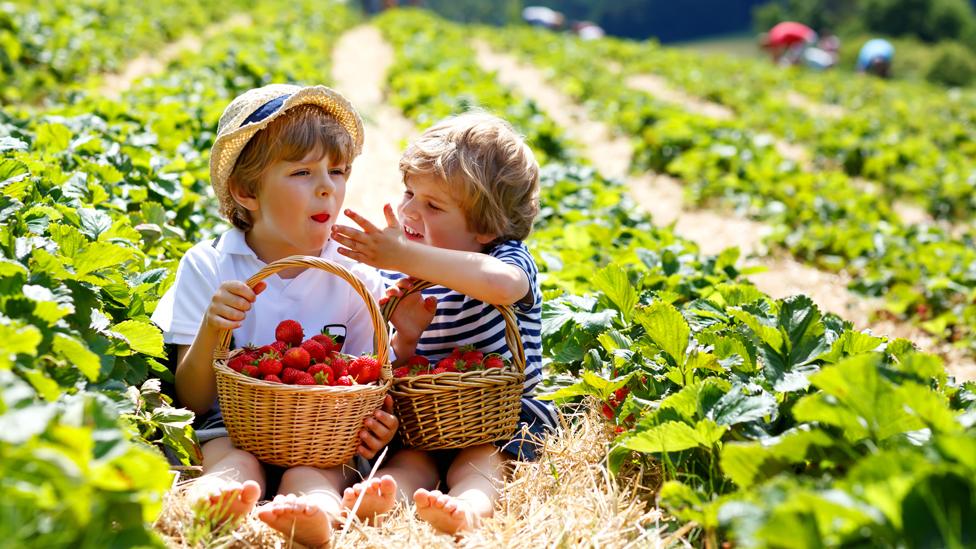Cost of living: Will this mean more home grown fruit and veg?
- Published
Mike Harvey grows enough veg on his allotment to feed his family all year round
The rising cost of food is strengthening arguments for Wales to grow more of its own vegetables.
Higher energy prices and the war in Ukraine have caused the price of frozen vegetables to skyrocket - a trend one economist said would continue.
Wales uses only a fraction of its land to grow vegetables and the amount has halved since 1998.
But higher prices could make vegetables more viable for farmers and force some people to grow their own.
"I love growing food for me and for other people," said farmer Katherine Langton.
"I never realised as a kid that you could do farming as a job. As soon as I realised that this was kind of a viable option for someone, I thought 'hang on, this is what I should do'."
Along with her partner David Langton, the 27-year-old started a business in 2020, renting a two-acre field in Crickhowell, Powys, and growing fruit, vegetables and flowers.
They supply weekly boxes of vegetables and fruit to 60 families, sell in the town's market and donate any unsold veg to a nearby food bank.
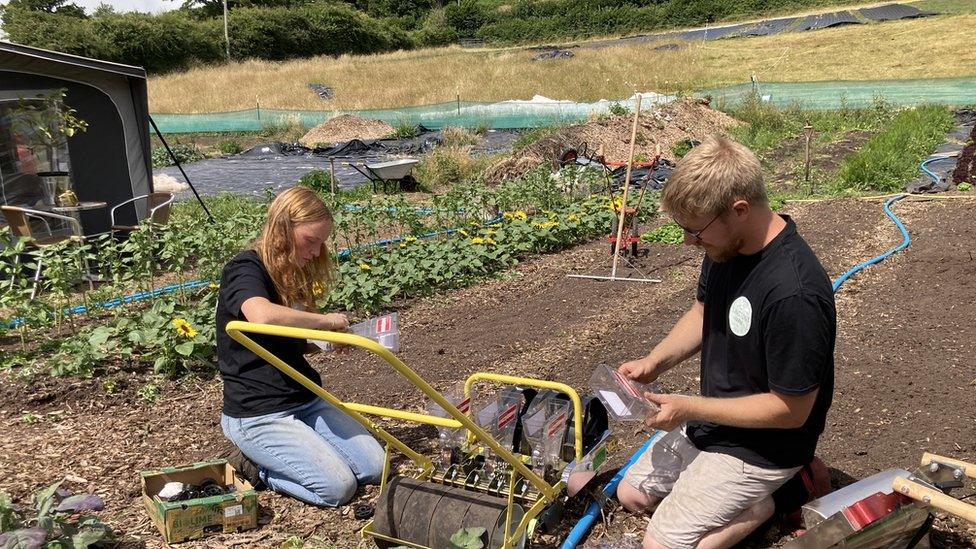
Katherine and David Langton grow vegetable for about 60 families
Katherine and David did not grow up in farming families, so "watched a lot of YouTube videos" to get to grips.
They live near their crops in a caravan and have plans to expand in the future. There is enough work for them to employ extra workers, for about 40 hours a week.
Their story runs counter to the trend in Wales in recent decades.
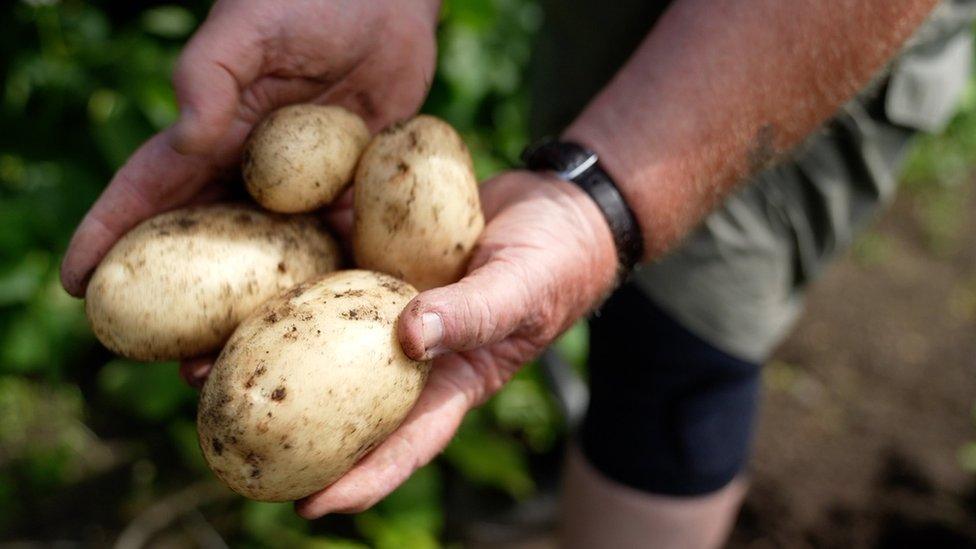
The rising cost of living could see more people growing their own vegetables, like these potatoes at an allotment in Blaenau Gwent
Official figures indicated since 1998 the amount of agricultural land used to grow vegetables and salad halved, from 587 hectares to 298 hectares last year.
The number of regular and casual farmer workers also fell, from 16,610 to 12,448.
Dr Huw Dixon, of Cardiff University, said food prices would continue to go up because of the energy that goes into production, from fuel in a farmer's tractor to the electricity in processing plants.
The invasion of Ukraine, a major food exporter, is pushing prices even higher, he added.
"Also there is climate change... droughts in France, which is one of the biggest grain producers, and floods in India which exports a lot of wheat," he said.
"Harvests across the world are being affected."
Prof Dixon said farmers needed help to produce more fruit and vegetables and everyone should be trying to grow their own food.
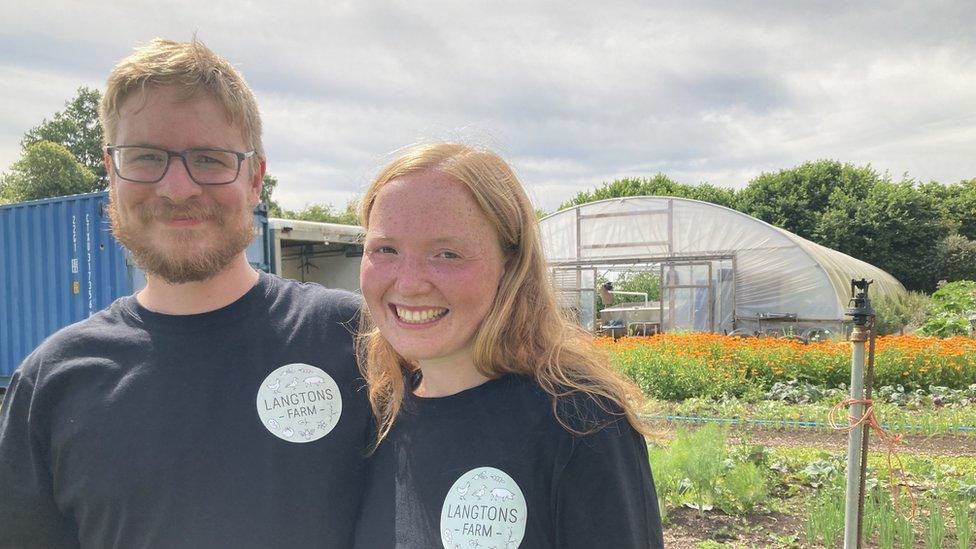
Katherine Langton says she never considered growing vegetables as a job when she was younger
The allotment in Brynmawr, Blaenau Gwent, was created during World War One to help families feed themselves.
A century later it is again full of a huge variety of vegetables and feeding families trying to make ends meet.
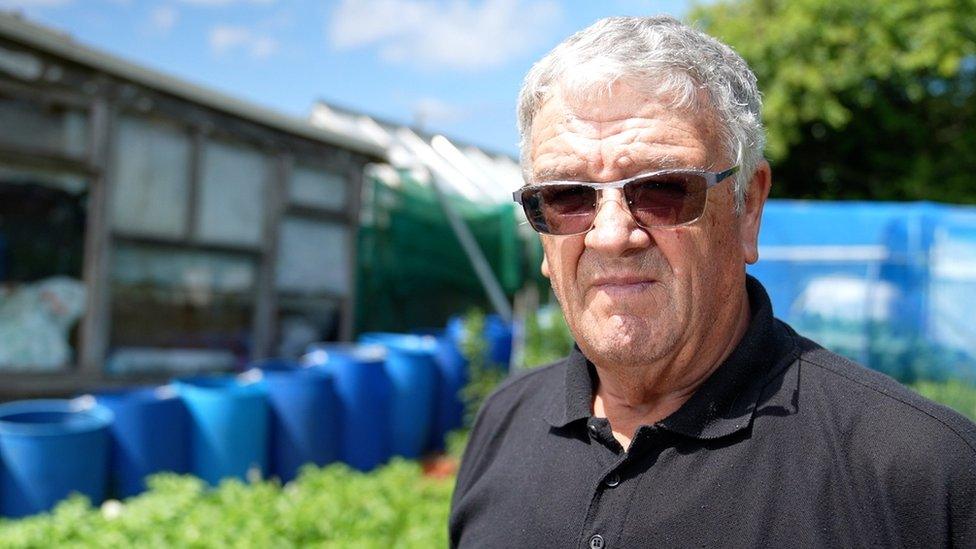
Mike Harvey says growing your own vegetables is not hard
Mike Harvey one of the allotment owners, said: "It is not difficult, you take a pack of carrot seed, 200 in the pack. I had two packets, that's 400 carrots, potentially."
Mike and his allotment neighbour Dai Lewis grow potatoes, onions, beans, carrots, and tomatoes and produce enough to see them through most of the year with enough leftover to give plenty away.
"Fresh stuff tastes better than what you get in the supermarkets because what you grow in a container out the back garden has not been sprayed," he added.
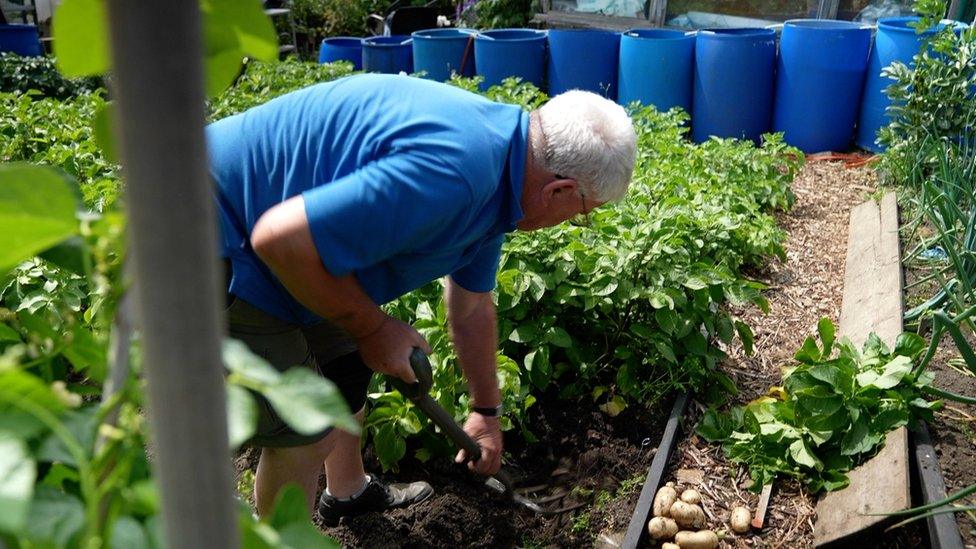
Dai Lewis digging up fresh spuds at his allotment in Brynmawr
You do not even need a garden, Mr Harvey said, explaining how you can grow vegetables on a patio or in a yard using an old dustbin or even, like him, an old bathtub.
Growing a row of stick beans and spuds in the garden was a central part of rural and valleys life a generation ago.
But some large farmers said they would struggle to make money growing vegetables.
"We would have to do 20 acres to make it worthwhile," said Tom Rees, 33, who farms with his father, uncle, brother and cousin at Pendoylan, Vale of Glamorgan.
They raise cows and sheep on a 950-acre farm, large by Welsh standards, growing barley and maize to feed their livestock.
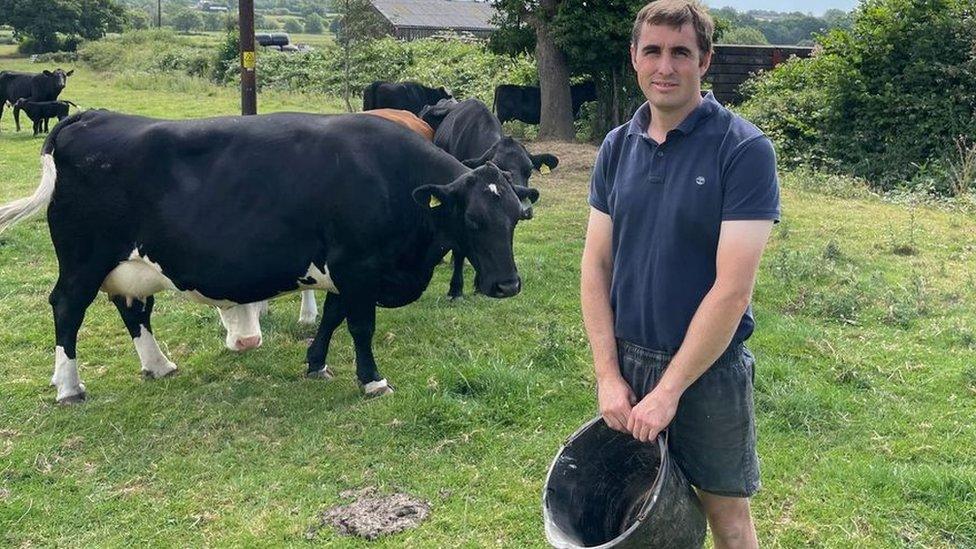
Farmer Tom Rees says right now he is better off raising livestock
"We would need a huge level of investment to grow the vegetable crops and store them in temperature-controlled storage," Mr Rees said.
"We'd be better off doing what we are doing."
He explained they would have to hire extra workers for a twenty-acre vegetable operation.
"Getting hold of labour is hard enough in the UK since Brexit," Mr Rees said.
"I'm better putting my knowledge into growing beef."
The Welsh government recently published the support it proposes to give farmers, external in the future.
Growing vegetables and fruit will get some support, but it is too early to know how many farmers will take up the challenge or whether the demands of the wider food industry make that too much of a problem for them.

EXPLORE ANGLESEY'S RICH WILDLIFE: Iolo explore Wales’ biggest island by land and sea
ICONIC WELSH PEOPLE, PLACES AND THINGS: Kiri unearths the best clips from the BBC Wales archive

- Published26 May 2022
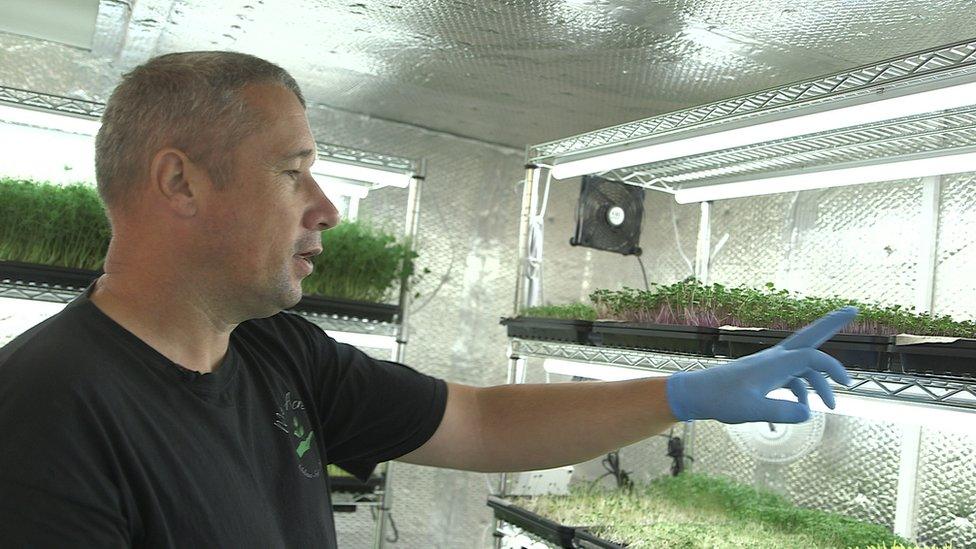
- Published14 January 2021
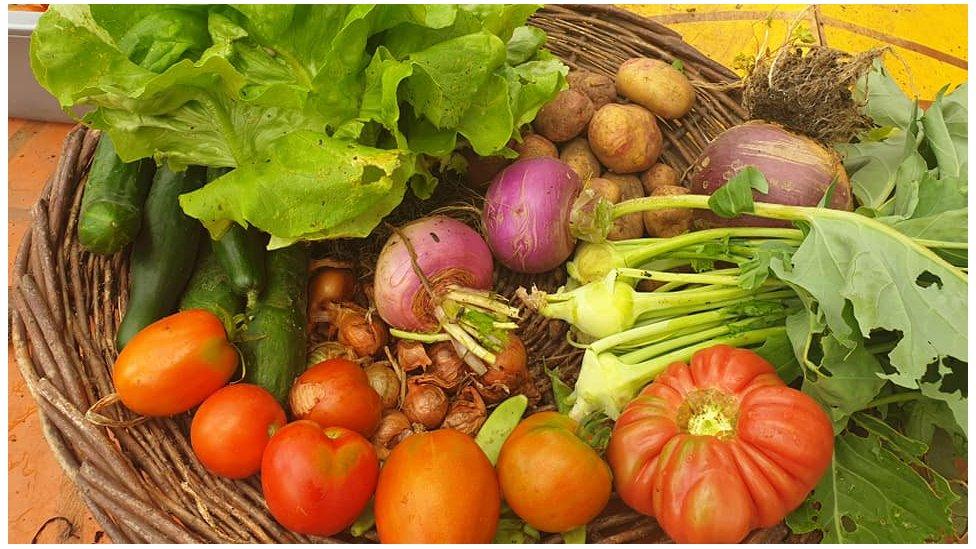
- Published1 August 2019
